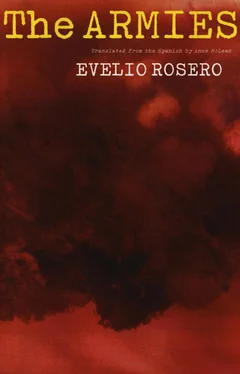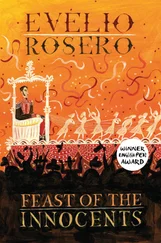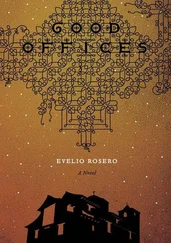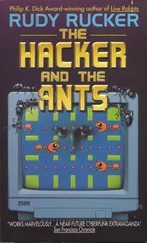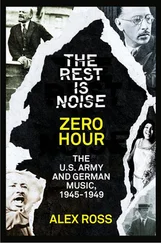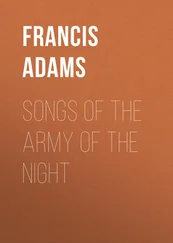“Do you feel alright?”
“I’ve never felt better. It’s just that I don’t want to go to Hortensia’s yet. I’ll be there soon.”
“Good that you’ve learned your lesson,” she says. “But it’s not the end of the world.”
Right where we are, on the corner of the street, is Chepe’s café. It is five in the afternoon and the tables — the ones near the pavement — are empty still. I make for one of those tables. My wife does not move: she is a white dress with red flowers in the middle of the road.
“I’ll wait for you there,” she says. “Don’t be long. It’s bad manners for a couple to come calling at separate times.” And she goes on her way.
I take hold of the nearest chair, drop into it. My knee is boiling inside. “Oh, God,” I sigh to myself, “I’m still here only because I have been incapable of killing myself.”
"What music would you like to hear, profesor? ”
Chepe has emerged from his shop, and brings me a beer.
“Whatever music you prefer, Chepe, and I don’t want beer, thank you, bring me a coffee good and black, please.”
“Why the long face, profesor? It bores you to visit Hortensia? The food is good there, is it not?”
“Tired, Chepe, tired from a short walk. I promised to join Otilia in ten minutes.”
“Well then, I’m going to bring you a coffee so black you won’t be able to sleep.”
But he puts the beer down on the table.
“Compliments of the house.”
Despite the cooling afternoon, the other pain, the one within, persists in burning my knee: all the heat of the earth seems to take refuge there. I drink half the beer, but the fire in my knee has become so unbearable that, after making sure Chepe is not keeping an eye on me from behind the counter, I roll up my trouser leg and pour the rest of the beer over my knee. Even this does nothing for the burning. “I’ll have to go and see Orduz,” I say to myself, resigned.
It begins to get dark; the street lights come on: yellow and weak, they produce large shadows, as if instead of illuminating they darken. I do not know how long a table next to mine has been occupied by two ladies; two chattery birds that I remember, two ladies who were once my pupils. And they see that I see them.
“ Profesor ,” says one of them.
I reply to her greeting by bowing my head.
“ Profesor ,” she repeats.
I recognize her, and begin to remember: was it her? When she was a little girl, at primary school, behind the dusty schoolyard cacao trees, I saw her hitch up the skirt of her uniform and show herself split in the middle to a little boy, barely a step away, possibly more frightened than she was, both of them blushing and stupefied; I didn’t say anything to them: how could I have interrupted them? I wonder what Otilia would have done in my place.
The women are old now, though quite a bit younger than Otilia; they were my pupils, I remind myself, flaunting my memory, I identify them: Rosita Viterbo, Ana Cuenco . Now each of them has more than five children, at least. The boy who was disturbed by Rosita’s charm, the hitching up of her skirt, was it not Emilio Forero? Always solitary, he was not yet twenty when he was killed, in the street, by a stray bullet, without anyone knowing who, where from, how.
They greet me with affection.
“How hot it was at midday, wasn’t it, profesor? ”
I do not respond, however, to their apparent appeal for a chat; I go on as if I had not heard: let them think me senile. Beauty overwhelms, dazzles: I could never keep from averting my eyes from the eyes of the beauty who looks back, but the mature woman, like these who brush hands as they talk, or the women full of old age, or those ones who are much older than those full of age, tend to be only good or great friends, faithful confidantes, wise advisers. They do not inspire my compassion (any more than I inspire it), or love either (any more than I inspire it). Someone young and unknown is always more bewitching.
That is what I am thinking — like an invocation — when I hear someone call me “sir” and the air beside me is permeated by the musky draught of the slender Geraldina, accompanied by her son and Gracielita. They sit down at my pupils’ table; Geraldina orders curuba juice for everyone, greets the ladies warmly, questions them, they reply yes, we too are going to Hortensia’s house, and we are here — adds Ana Cuenco — because look what a fine example the teacher sets, as soon as we saw him we felt like keeping him company while he had a rest.
“Thanks for that,” I say. “All the same, when I die will you keep me company?”
Unanimous and singsong laughter surrounds me: more than feminine, it slips through the air, crosses the night: what forest am I in, with little birds?
“Don’t be a pessimist, sir”—Geraldina is speaking, and everything seems to indicate that she will never again call me neighbor—”maybe we’ll die first.”
“Never. God would not commit such an error.”
The ladies nod their agreement, with solemn and grateful smiles; Geraldina opens her mouth, as if she wanted to say something and changed her mind.
Chepe arrives with the curuba juice; he leaves me a steaming cup of coffee. Geraldina sighs tumultuously — as if at the peak of lovemaking — and asks for an ashtray. It is a miracle, this presence; it is a potion; Geraldina is a remedy: now I feel no burning in my knee, the tiredness in my feet disappears, I could run.
I spy on her from here: without resting on the back of her chair, knees together but calves apart, very slowly, delicately, she removes her sandals, leans her body even further: revealing her neck, which is like a mast; the children greet their curuba juice voluptuously: their lips slurp, noisily, thirstily, while the night shines around them and I raise my cup and pretend to sip my coffee; Geraldina, naked the morning before, is dressed this evening: a vaporous little lavender frock undresses her another way, or undresses her more, you might say; she redeems me dressed or with her nakedness, if she is naked her other nakedness, the last glimpse of her sex, if only her remotest fold opening as she walks, all the dancing in her back, heart beating solemnly in her chest, in the shape of her bottom, her soul; I ask nothing more of life than this possibility to see this woman without her knowing that I’m looking at her, to see this woman when she knows I’m looking, but to see her: my only explanation for staying alive. She leans back in the chair, lifts one leg over the other and lights a cigarette, only she and I know that I am looking at her, and meanwhile my former pupils go on with their prattle, what are they saying? Impossible to listen, the children finish their curuba juice, ask permission to order more and disappear hand in hand into the shop, I know they do not want ever to return, that if it were up to them they would flee hand in hand to the furthest night of time, now again Geraldina uncrosses her legs, leans toward me, imperceptible, studies me, just for one second her eyes like a veiled warning touch me and confirm that I am definitely still looking at her, perhaps she is startled by such disproportionate, monstrous frankness, that someone, I, at my age, but what to do? All of her is the most intimate desire because I look at her, I admire her, the same as the rest of them look at her, admire her, much younger than me, the little boys — yes, she shouts, and I hear her, she wants to be looked at, admired, pursued, caught, turned over, bitten and licked, killed, revived and killed again for generations.
Again I hear the ladies’ voices. Geraldina has let out a little cry of sincere astonishment. For an instant her knees part, looking yellow under the street lights; her thighs, scarcely concealed by her short summer dress, appear. I take the last sip of my coffee: I distinguish, without managing to hide the fact, in the depths of Geraldina, the bulging little triangle, but the dazzle is spoiled by my ears, which struggle to confirm my former pupils’ words; they clamor about the horrible discovery of the corpse of a newborn this morning, at the rubbish dump, are they really saying that?
Читать дальше
